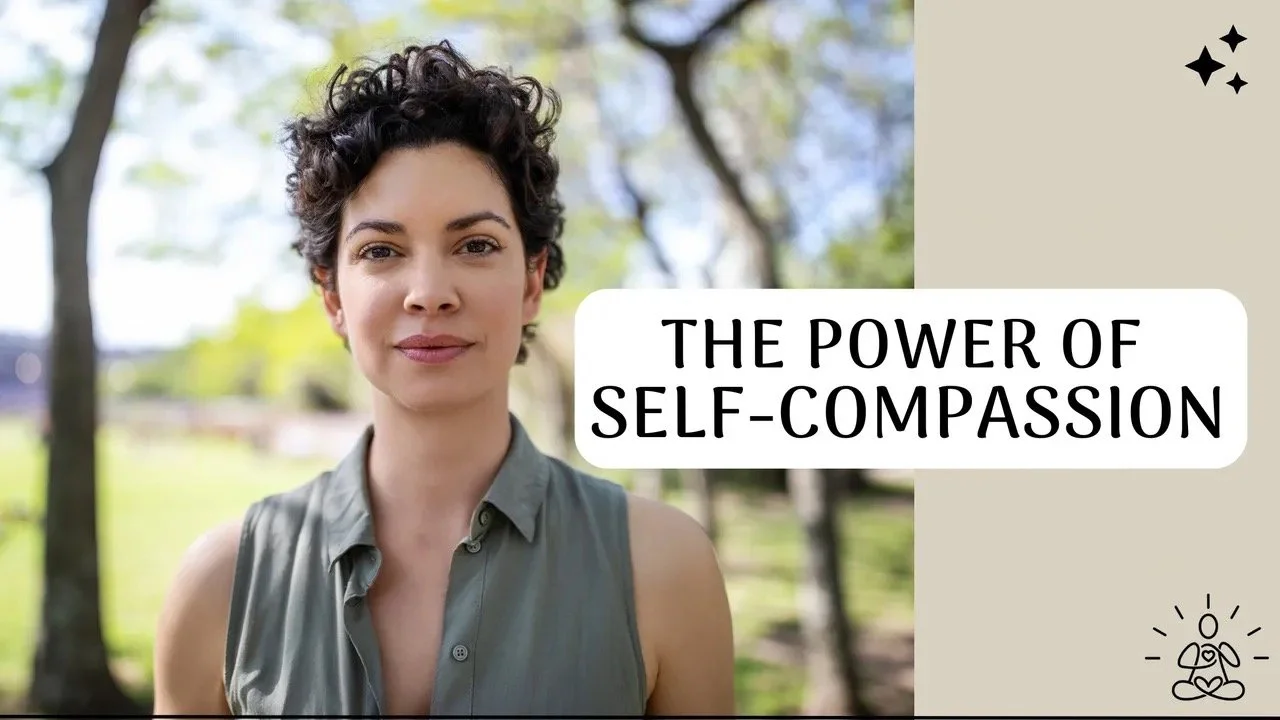The Power of Self-Compassion
Self-compassion is a transformative force in personal growth and emotional healing. In a world where many of us are quick to criticize ourselves for mistakes or perceived failures, self-compassion offers an alternative approach—one that nurtures resilience and promotes well-being. This practice involves treating ourselves with the same kindness, empathy, and understanding that we would extend to a close friend in difficult times. Unlike self-esteem, which is often contingent on success or external validation, self-compassion is a steady source of support that can be accessed in both moments of triumph and hardship.
What is Self-Compassion?
According to Dr. Kristin Neff, a pioneering researcher in the field, self-compassion has three core components: self-kindness, common humanity, and mindfulness.
Self-kindness involves being gentle and understanding with yourself rather than harshly critical.
Common humanity is the recognition that suffering and imperfection are part of the shared human experience.
Mindfulness is the ability to hold painful thoughts and feelings in balanced awareness, neither suppressing nor exaggerating them.
These elements work together to help individuals respond to challenges in a more balanced, emotionally healthy way.
The Science Behind Self-Compassion
Recent research continues to highlight the significant impact of self-compassion on emotional well-being. A 2019 study published in Personality and Individual Differences by researchers from the University of Surrey found that individuals with higher levels of self-compassion reported lower levels of stress and greater emotional regulation. This study reinforces the idea that self-compassion serves as a protective factor against negative mental health outcomes, making it easier to navigate life's difficulties without becoming overwhelmed by them.
Additionally, this research shows that self-compassionate individuals are less likely to experience anxiety or depression, and they are more resilient in the face of adversity. The study also revealed that self-compassion is linked to a greater sense of life satisfaction and personal well-being. This aligns with previous findings that suggest self-compassion allows people to recover from setbacks more effectively without succumbing to self-doubt or harsh self-criticism.
Self-Compassion and Personal Growth
Self-compassion doesn’t mean avoiding responsibility or making excuses. Instead, it creates an environment where personal growth can thrive. When we are kind to ourselves in moments of struggle, we can more easily identify areas for improvement without the cloud of harsh judgment. This allows for constructive change rather than self-punishment.
Research has shown that self-compassion leads to greater motivation. A study published in Personality and Social Psychology Bulletin in 2011 found that self-compassionate individuals were more likely to take responsibility for their actions and make positive changes after a failure, compared to those who were more self-critical. When people feel emotionally supported, even by themselves, they are more likely to pursue their goals with enthusiasm rather than fear of failure.
The Role of Self-Compassion in Healing
In addition to fostering personal growth, self-compassion plays a significant role in emotional healing. When we experience pain—whether from loss, trauma, or personal disappointment—self-compassion offers a pathway to recovery. Rather than avoiding or numbing painful emotions, self-compassion encourages us to face them with patience and understanding. This practice allows individuals to heal without becoming stuck in cycles of shame or self-blame.
A 2021 study published in Mindfulness highlighted the role of self-compassion in reducing anxiety and promoting emotional resilience. Conducted by researchers from the University of British Columbia, this study found that participants who practiced self-compassion were better equipped to handle stress and were less likely to engage in avoidance behaviors. This supports the notion that self-compassion fosters emotional clarity and helps individuals process their feelings more effectively.
How to Cultivate Self-Compassion
While some people are naturally more self-compassionate than others, the good news is that self-compassion can be learned and strengthened over time. Here are a few strategies to help you cultivate this powerful skill:
Practice Mindfulness: Mindfulness is essential for self-compassion because it helps us become aware of our emotions without being swept away by them. When you notice negative self-talk or harsh judgments, pause and acknowledge what you're feeling. Recognize that these feelings are temporary and do not define your worth.
Reframe Self-Talk: When you catch yourself engaging in self-criticism, ask yourself how you would speak to a close friend in the same situation. Shift your inner dialogue to be more supportive and understanding, recognizing that everyone makes mistakes and has difficult moments.
Embrace Imperfection: Remind yourself that perfection is an unrealistic standard, and striving for it can lead to burnout and dissatisfaction. Accepting your imperfections as part of being human will allow you to approach life with more ease and self-compassion.
Write a Compassionate Letter: A powerful exercise in self-compassion is writing a letter to yourself during a time of difficulty. In this letter, express empathy for what you're going through and offer words of comfort and encouragement. This can help shift your mindset from self-criticism to self-compassion.
Connect with Others: Self-compassion also involves recognizing that you're not alone in your struggles. Connecting with others who share similar experiences can remind you that suffering is a common part of life and not a personal failure.
Conclusion
The power of self-compassion lies in its ability to transform how we relate to ourselves, particularly in times of difficulty. By cultivating self-kindness, embracing our shared humanity, and practicing mindfulness, we create a foundation for personal growth, emotional healing, and resilience. Research has shown that self-compassion not only improves mental health but also motivates us to take positive action in our lives. As we learn to treat ourselves with more compassion, we build the emotional strength needed to navigate challenges and achieve lasting well-being. If you’re looking to embrace self-compassion and improve your emotional health, I invite you to contact Graceful Mind Therapy. Together, we can work toward your goals and foster a more fulfilling life.
by Maria Perdomo-Torres, LCSW-S, MHA ,CFSW


